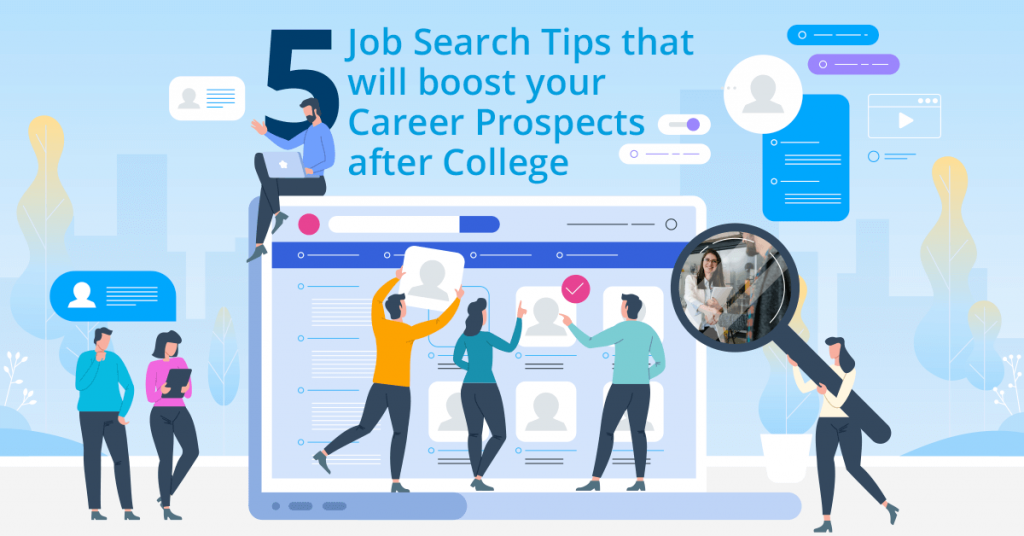
One thing I’ve learned since I started working at UMass Lowell is that the campus events, workshops and courses are created specifically to help you gain the skills you need to improve your career prospects. And to make the job search less painful so you can thrive in the real world.
Basically, college exists so you can get a job.
CoLLeGe iS so YOu cAn gET A joB.
That college needs to be an affordable pathway to a career sounds like an obvious thing, but as a millennial, the general mindset of my generation was ~dramatically~ different. I ran around saying things like, “I’m going to be productive today and talk to someone about getting a job. I got thi—new sushi bar on campus?!”

UML has a ton of awesome services offered through their career services department, Career & Co-Op Center, which helps give students a competitive edge for their future career prospects.
When I saw that the Career & Co-Op Center was hosting a session on how to boost internship and job search skills, I signed up as fast as I could.

Everyone I talked to that helps with these career services was incredibly welcoming, genuine and generous with their advice. They want to help you. Like, they really want to help. The presenter took the time to really answer everyone’s questions and listen to everyone’s concerns. I got the sense that she heard all the students and understood what they were anxious about and what they needed help with.
Here are some “strategies for success” I learned in the session. This should help you if you’re curious about some of the ways that UML prepares students for the job search and their future careers.
1. Use Career Link when you start the job search

UMass Lowell owns this online database and companies post job and internship listings directly to it. It has companies near and far. We send students who want to go far away to other parts of the country and overseas to gain work experience all the time. This is different from job listing sites like Indeed because the employers post listings here because they specifically want to hire UML students. You can even get email notifications when a new listing goes up in a field you’d like to work in.

2. Networking isn’t scary

Mood.
But the cold, hard truth is that networking gets 75-85% of people a job. Networking is one of those words that people like to throw around, and it sounds really intimidating at first, but it’s just another word for making friends and building connections with people.
Like what you’re reading so far? Sign up for alerts for new blog posts, and learn more about UMass Lowell as I do.
3. “I will not pressure you for a job.”

These. Are. The. Most. Important. Words. In. Your. Life. Remember them. When you network with anyone with the intention of working towards a job position, do not open with, “help me. I want a job,” or, “give me a job.”
Instead, when you reach out to someone, make it clear that you only want to talk to learn more about what they do, what skills they think you’ll need to know to work in their industry, etc. Tell them straight out that you just want ten minutes of their time to learn and that you won’t pressure them for a job.
Read More: Two Truths & A Lie: Art Students Edition
4. LinkedIn is actually useful

UMass Lowell has an alumni group on LinkedIn that sounds like it will save you a ton of time finding people to connect with. Alumni are gold standard when it comes to networking. The people on UML’s Alumni LinkedIn group are there because they got a lot out of their education and want to let the world know that they graduated from UML. That’s good for you because these types of alumnus are usually happy to pay it forward and give you a chance. They may not know you, but they know where you’re coming from and that creates a sense of camaraderie that you should take advantage of.
5. Actively look for ways to get experience. Just do it.

The experience you gain in college determines how easily you’ll overcome the challenge of finding a career. But how can you get experience? The trick is putting yourself out there and doing something when you see an opportunity.
Don’t be afraid to volunteer. Look for places that will help you develop the types of skills you know are important in your major. Ask to help a professor with research. See if your department needs extra help in their office. It’s a great way to grow the skills you need in the real world and beef up your resume.
